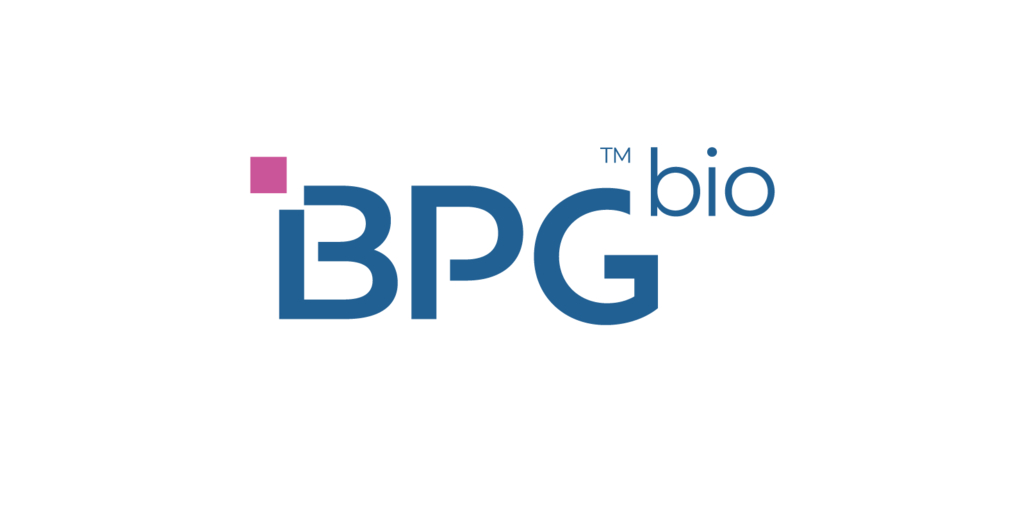- Novel insights stem from Project Survival®, a 7-year multi-center longitudinal clinical trial of pancreatic ductal adenocarcinoma
- Findings reveal distinct metabolic subtypes tied to patient survival and highlight the potential for a minimally invasive method of subtyping to stratify patients for more personalized treatments
BOSTON--(BUSINESS WIRE)--#GI25--BPGbio, Inc., a leading biology-first, AI-powered clinical-stage biopharma company focused on mitochondrial biology and protein homeostasis, today announced the presentation of new findings in pancreatic cancer subtyping from Project Survival® (NCT2781012), the company’s seven-year longitudinal pancreatic cancer precision medicine clinical trial. The results will be presented at the ASCO Gastrointestinal Cancers Symposium, being held January 23–25, 2025, in San Francisco, Calif.
Aimed at improving pancreatic cancer survival rate, the multi-center clinical trial employed comprehensive biomarker discovery to understand patient survival, enabling the development of new diagnostic, therapeutic, and clinical support solutions. Leveraging the biology-first approach and causal AI capabilities of BPGbio’s proprietary NAi Interrogative Biology® platform, researchers conducted a comprehensive multiomics analysis of plasma samples from 280 pancreatic ductal adenocarcinoma (PDAC) patients over seven years and found distinct molecular patterns correlated with both long-term and short-term survival outcomes.
“Pancreatic cancer is not a one-size-fits-all disease. One of the biggest challenges we face in treating it is the rapid progression of the disease, which often leaves us with little time to make critical decisions,” said Madappa Kundranda, M.D., Ph.D., Chief of Division of Cancer Medicine, Banner MD Anderson Cancer Center, who was the principal investigator of the study. “Our research aims to address this by identifying pancreatic cancer subtypes quicker, allowing us to better select patients for clinical trials and, ultimately, develop more tailored treatments that can significantly improve patient outcomes.”
Notably, elevated cholesterol metabolism was observed in long-term survivors, while reduced levels of specific lipids characterized short-term survivors, among other biomarkers. These findings offer the potential of non-invasive blood-based biomarker panels for precise patient stratification and more tailored treatment.
“This study identifies how critical it is to go beyond genomics in biomarker discovery in order to capture the biological diversity of patients which impacts therapeutic decisions,” said Michael A. Kiebish, Ph.D., Vice President of Platform and Translational Sciences, BPGbio. “To effectively treat the patient, not just the disease, we must identify the right molecular signature, which can be revealed through advanced multi-omics technologies that provide a holistic view of the body’s biology.”
Pancreatic cancer remains one of the deadliest cancers due to its typically late diagnosis and rapid progression. The current method of identifying tumor tissue subtypes such as ‘Cholesterogenic’ and ‘Classical’ is associated with improved survival, but tissue-based profiling poses challenges due to the invasive nature of sample collection and the time it takes to analyze tissue subtypes, relative to the quick advancement of the disease.
“At BPGbio, we believe that understanding differences in patient biology, such as between diseased and non-diseased populations, requires a systems medicine approach. These findings from Project Survival® are a testament to the power of that perspective,” said Niven R. Narain, Ph.D., President and CEO of BPGbio. “By expanding our focus beyond cancer tissues and by performing comprehensive molecular profiling on patient plasma, we unlock critical insights into pancreatic cancer biology. This approach enables us to move toward more tailored treatments for various categories of patients, bringing us closer to the ultimate goal of this meaningful project - survival.”
ASCO-GI Presentation Details
Abstract #: 775
Abstract Title: Lipogenic and Metabolic Subtypes Define Survival Outcome in Pancreatic Adenocarcinoma Patients
In-Person Session Name: Poster Session B: Cancers of the Pancreas, Small Bowel, and Hepatobiliary Tract
In-Person Poster Session Date: January 24, 2025, 11:30 a.m. - 1 p.m. PST
Presenter: Madappa Kundranda, M.D., Ph.D.
About BPM31510
BPM31510IV is BPGbio’s lead candidate in late-stage development for aggressive solid tumors such as glioblastoma multiforme (GBM) and pancreatic cancer. Other topical and oral formulations of the investigational agent are also being developed as a potential treatment for several rare diseases. The compound has demonstrated a tolerable safety profile and shown potential clinical benefits across multiple disease indications. Validated by BPGbio’s NAi Interrogative Biology platform, BPM31510 induces a hallmark shift in the tumor microenvironment (TME) by modulating mitochondrial oxidative phosphorylation in aggressive tumors, leading to cancer cell death. In many mitochondrial diseases, restoring CoQ10 levels can overcome the effect of mutations in genes that lead to mitochondrial dysfunction. BPM31510 has been granted Orphan Drug Designation by the FDA for GBM, pancreatic cancer, and epidermolysis bullosa (EB), as well as Rare Pediatric Disease Designation for primary CoQ10 deficiency and EB.
About BPGbio
BPGbio is a leading biology-first AI-powered clinical stage biopharma focused on mitochondrial biology and protein homeostasis. The company has a deep pipeline of AI-developed therapeutics spanning oncology, rare disease and neurology, including several in late-stage clinical trials. BPGbio’s novel approach is underpinned by NAi, its proprietary Interrogative Biology Platform, protected by over 400 US and international patents; one of the world’s largest clinically annotated non-governmental biobanks with longitudinal samples; and exclusive access to the most powerful supercomputer in the world. With these tools, BPGbio is redefining how patient biology can be modeled using bespoke Bayesian AI specifically designed for solving large-scale biology challenges. Headquartered in greater Boston, the company is at the forefront of a new era in medicine, combining biology, multi-modal data, and AI to transform the way we understand, diagnose, and treat disease. For more information, visit www.bpgbio.com.
Contacts
Media Contact
media@bpgbio.com






